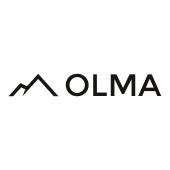Investors looking to invest in luxury
Operating countries
Check size
Stages
About us
600K - 5M
OLMA is a Catholic, all-girls, college-preparatory school in New Jersey. It offers a rigorous academic program and diverse extracurricular activities that promote faith, sisterhood, achievement, leadership, and service. The school has a strong sense of community and provides a supportive environ...
Fundraising for luxury:
Luxury startups have attracted a significant amount of investment in recent years, as the industry continues to evolve and consumers' preferences shift towards more personalized and sustainable products. Investors in the space have had success in various subcategories, such as:
- Fashion and apparel: This subcategory includes startups offering clothing and accessories that challenge the traditional luxury brands. Successful startups in this space include Everlane and Away, which have both received significant investment. The challenge in this subcategory is to create a brand that can appeal to consumers while also offering high-quality products at a lower price point than traditional luxury brands.
- Beauty and wellness: Startups in this space are focusing on natural and sustainable beauty products that challenge traditional brands. Some of the successful startups in this subcategory include Glossier and Honest Beauty. The challenge in this space is to offer a unique and high-quality product while also standing out in a crowded and competitive market.
- Home and furniture: Startups in this space are creating high-end products for the home that offer a unique design and high quality. Some of the successful startups in this subcategory include Brooklinen and Casper. The challenge in this space is to create products that are both visually appealing and functional, while also offering a sustainable and eco-friendly approach to home goods.
Competing with established luxury brands is a major challenge for luxury startups. Many of these brands have a strong reputation and a loyal customer base, making it difficult for new entrants to establish themselves in the market. Additionally, the luxury industry is highly regulated, making it difficult for startups to navigate the regulations and requirements.

 FR
FR
 DE
DE
 IT
IT